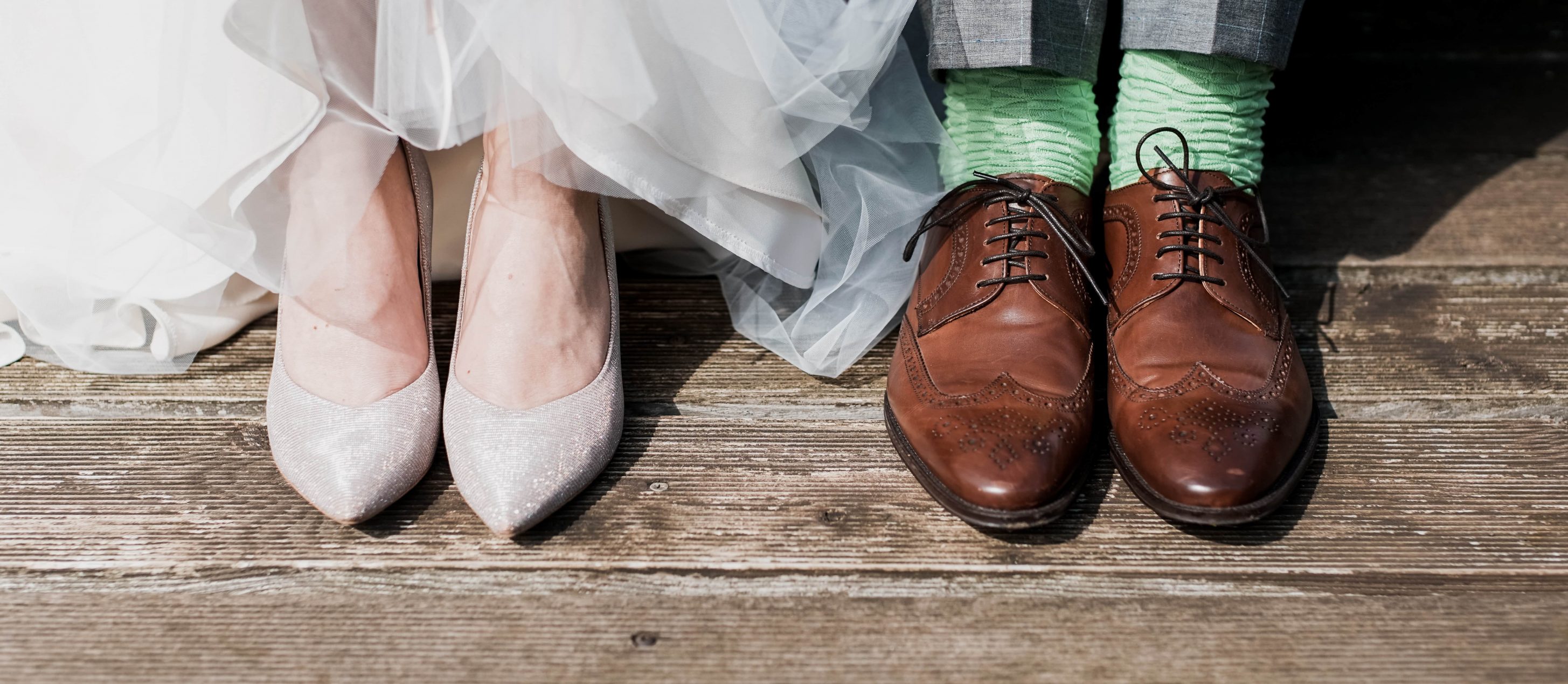

Are you looking to get married in Cornwall? Would you like to incorporate the Cornish language into your wedding ceremony?
Former Grand Bard of the Gorsedh, Mick Paynter, has crafted a bilingual and secular wedding blessing that honours both our beautiful Cornish language and Celtic heritage. We caught up with Mick to find out more about the creation of this unique and memorable ceremony.
What inspired you to create a bilingual wedding ceremony in Cornish and English?
When in Brittany for the Breton Gorsedh a few years ago, I was interested to hear there was a bardic ceremony used for those who wanted to mark their wedding in a secular way using the Breton language. Per Vari Kerloc’h, who heads up the Gorsedh in Brittany, gave me a copy of the ceremony that was in both Breton and French. A couple of years later, some friends asked if I could help their daughter get married: she wanted to include the Cornish language, but didn’t want a traditional church ceremony. Their wedding took place in Luxulyan, and was the first to use this bilingual Cornish and English ceremony. Since then, I have conducted many wonderful Cornish language weddings.
“Dydh agan demedhyans o marthys. An yeth kernewek a ros dhyn ni agan tiow. Ni a wra kerdhes skoodh ryb skoodh rag oll a’gan viaj, ow tyski hag ow kara war-barth bys vykken.”
“Our wedding day was marvellous. The Cornish language gave us our vows. We will walk side by side for the rest of our journey, learning and loving together forever.”
– Raymond Bridgewater, who was married by Mick using the Cornish ceremony
Can you tell us a little about putting the wedding ceremony together?
When I had the initial request, I translated the Breton ceremony from Breton and French into Kernewek and English. But finding it lacking in Cornish content, I decided to incorporate the Charter Fragment: a humorous poem about marriage, believed to be one of the earliest Cornish language writings. The Fragment seems to be created for performance, with two players and an audience. It starts with ‘Goslowewgh’ (listen all!), which is plural and continues to ‘Ty, Goweth’ (you, friend), which is singular. Similarly, I divided the Fragment into three parts: the assembled people, the groom and the bride. There are a few minor additions or alterations at the request of the couple involved, but the poem remains almost intact and includes a joke that still raises an audible laugh after 600 years.
Is there a favourite extract from the ceremony you could share with us?
“Gans kerensa an dhewbries unyes ens i. Pan na vydh kerensa, ny vydh kevren mann. Ny vydh hwath priosoleth. Pub huni yw digabester, unyes gans kowethyans hepken Pub huni yw mester war y wara. War-barth adhyskans an fleghes a vydh surhes. Kerensa yw laghen unnik an dhewbries.”
“The two spouses are united by love. Without love there is no link, there is no longer a marriage. Each person is free, united by affection only. Each person controls their own goods. Together the education and upbringing of the children is assured. Love is the sole law of marriage partners.”
Although the ceremony is secular, we believe it has a spiritual aspect common to the Celts in Brittany, Cornwall and Ireland. Can you tell us a little about this?
The opening calls on the elements to assist in the ceremony, with a section about ‘the apple and the mead’ (see below) that to me expresses a connection with the spirit of our Celtic heritage. There are also references from the Welsh Triads medieval manuscripts that proclaim peace in harvest meetings and weddings. As part of the ceremony, the couple and the guests share apple and mead.
“Ottomma an aval yw arwodh agan bys, y vos pur rond ha leun a hwekter, hag ynno sprus a borth bewnans y’n taklow oll, gwrewgh y gemeres rag hwi a rann hag an bys ha’y hwekter adhia’n jydh ma. Ottomma an aval. Mas yw rag dybri. Ottomma an medh, ober ha’n howl, an gwenen ha mab den, mas yw rag eva.”
“Here is the apple, a symbol of our world. It’s perfectly round and full of sweetness, and inside are the pips that carry life to all things, take it for you will share both the world and its sweetness from today. Here is the apple its good to eat. Here is the mead, the work of the sun, the bees and mankind, it is good to drink.”
To find out more about the Cornish language wedding ceremony, contact Mick Paynter on [email protected]. People who wish to marry or renew their marriage vows in Kernewek at the Island Chapel in St Ives can contact the St Ives Council here.
Share